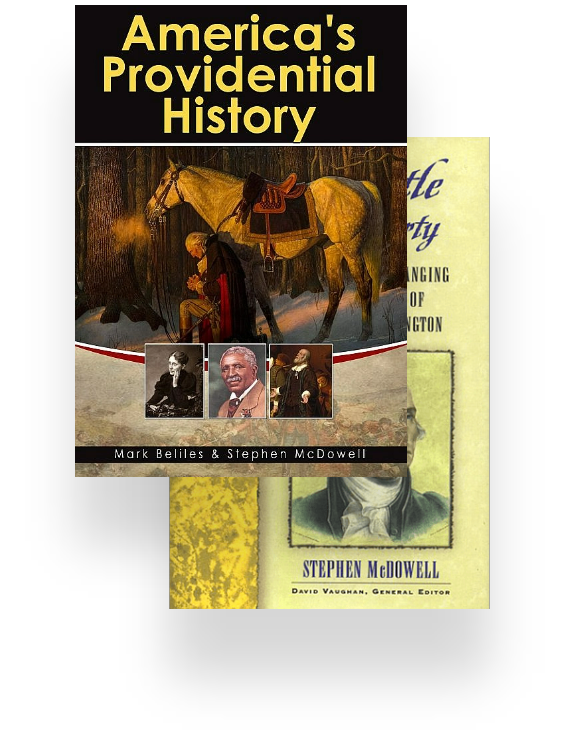PF UNIVERSITY


February marks the birthdays of Presidents Washington and Lincoln. It is when we observe President’s Day, a national holiday. Following are some articles and resources to help you better understand the faith of some of these men.
Listen to a brief radio interview of Stephen McDowell on The Faith of our Presidents:
George Washington is one of the most significant men in all of history. Regarding the direct advancement of civil and political liberty in the earth, he may well be the most significant champion in all history. Certainly he was the central figure of bringing a new era of liberty to the world in modern times. Abraham Lincoln observed:
Washington is the mightiest name of earth —long since mightiest in the cause of civil liberty, still mightiest in moral reformation. On that name no eulogy is expected. It cannot be. To add brightness to the sun or glory to the name of Washington is alike impossible. Let none attempt it.
To learn about God’s hand in the Father of America see:
George Washington: An Instrument in the Hands of Providence
Was Washington a Christian? For the answer see:
The Christian Faith of George Washington
For a biography of Washington highlighting the providence of God, order the book:
Apostle of Liberty, The World-Changing Leadership of George Washington
In response to being presented a Bible on September 7, 1864, Abraham Lincoln said:
In regard to this Great Book, I have but to say, it is the best gift God has given to man. All the good Saviour gave to the world was communicated through this book. But for it we could not know right from wrong. All things most desirable for man’s welfare, here and hereafter, are to be found portrayed in it.
This is the view many would have of Lincoln’s faith, but some people have presented Lincoln in a different light, including some who knew him well. William Herndon, Lincoln’s law partner for about 18 years, said of him: “As to Mr. Lincoln’s religious views, he was, in short, an infidel. . . . Mr. Lincoln told me a thousand times that he did not believe the Bible was the revelation of God as the Christian world contends.”
Skeptics of Lincoln’s Christian faith have portrayed him as not just an unbeliever but as a scoffer. Charles Minor records of Lincoln that “when he went to church, he went to mock and came away to mimic.” Yet, Rev. James Smith, the pastor of the First Presbyterian Church in Springfield where Lincoln attended for over 10 years, gives a much different picture. Replying to a number of questions posed in a letter from Herndon, Smith wrote: “With regard to your second question, I beg leave to say it is a very easy matter to prove that while I was pastor of the First Presbyterian Church in Springfield, Mr. Lincoln did avow his belief in the divine authority and inspiration of the Scriptures.”
Which of these views is right? Why the contrary views? [read on]
The Inaugural Addresses of the Presidents Reveal Their Christian Faith (part 1)
The Inaugural Addresses of the Presidents Reveal Their Christian Faith (part 2)
While Jefferson was unorthodox in some of his beliefs, he nonetheless considered himself a Christian and understood that God through Christ pushed the precepts of God’s law into the heart of men.
For an overview of Jefferson’s faith see:
Thomas Jefferson and the Words of Jesus of Nazareth
To learn about the church Jefferson started and his pastor, see:
Rev. Charles Clay and the Calvinistical Reformed Church of Charlottesville
To read Jefferson’s own writings and letters regarding religion, order:
The Selected Religious Letters and Papers of Thomas Jefferson
PF UNIVERSITY
The courses offered by the Providence Foundation Biblical Worldview University (BWU) are designed to equip leaders of education, business, and politics to transform their culture for Christ, and to train all citizens how to disciple nations.
DONATE
Support Providence Foundation today! Choose Minuteman, Patriot, or Founder level and make a monthly impact. Or select ‘Custom’ to contribute now. Join us in shaping our nation’s future
